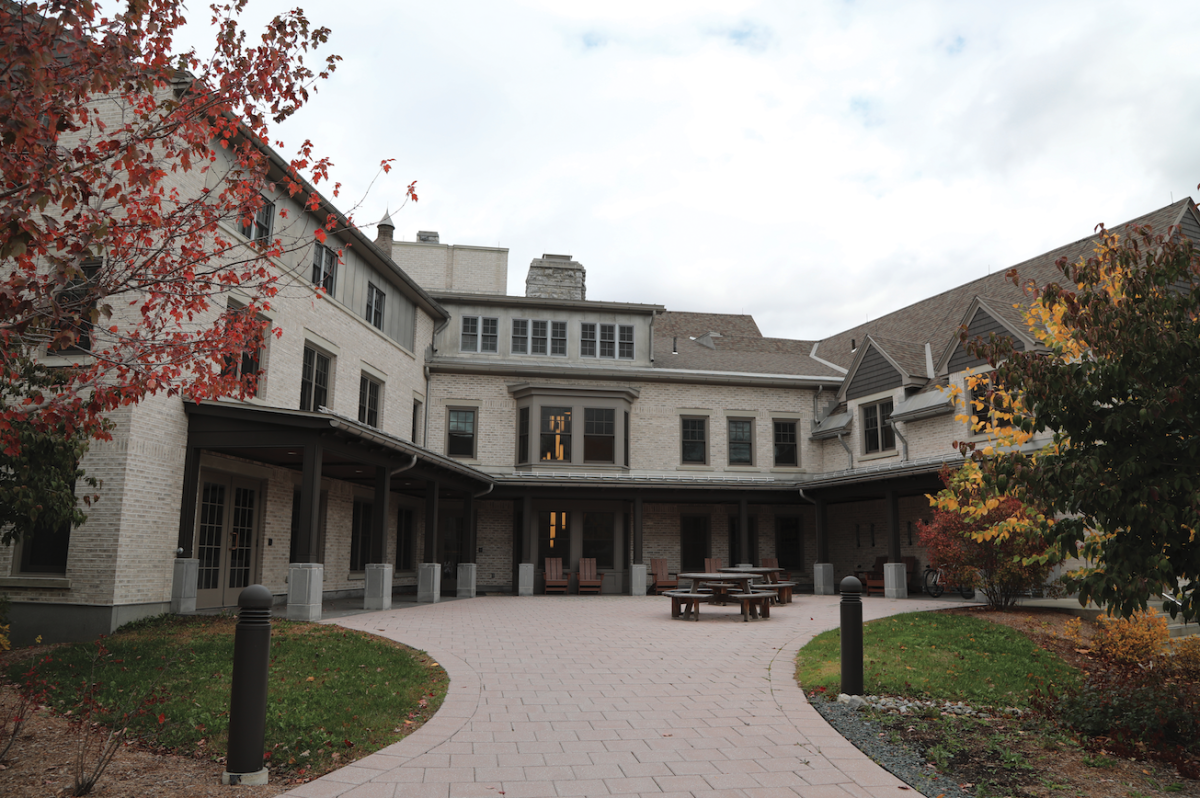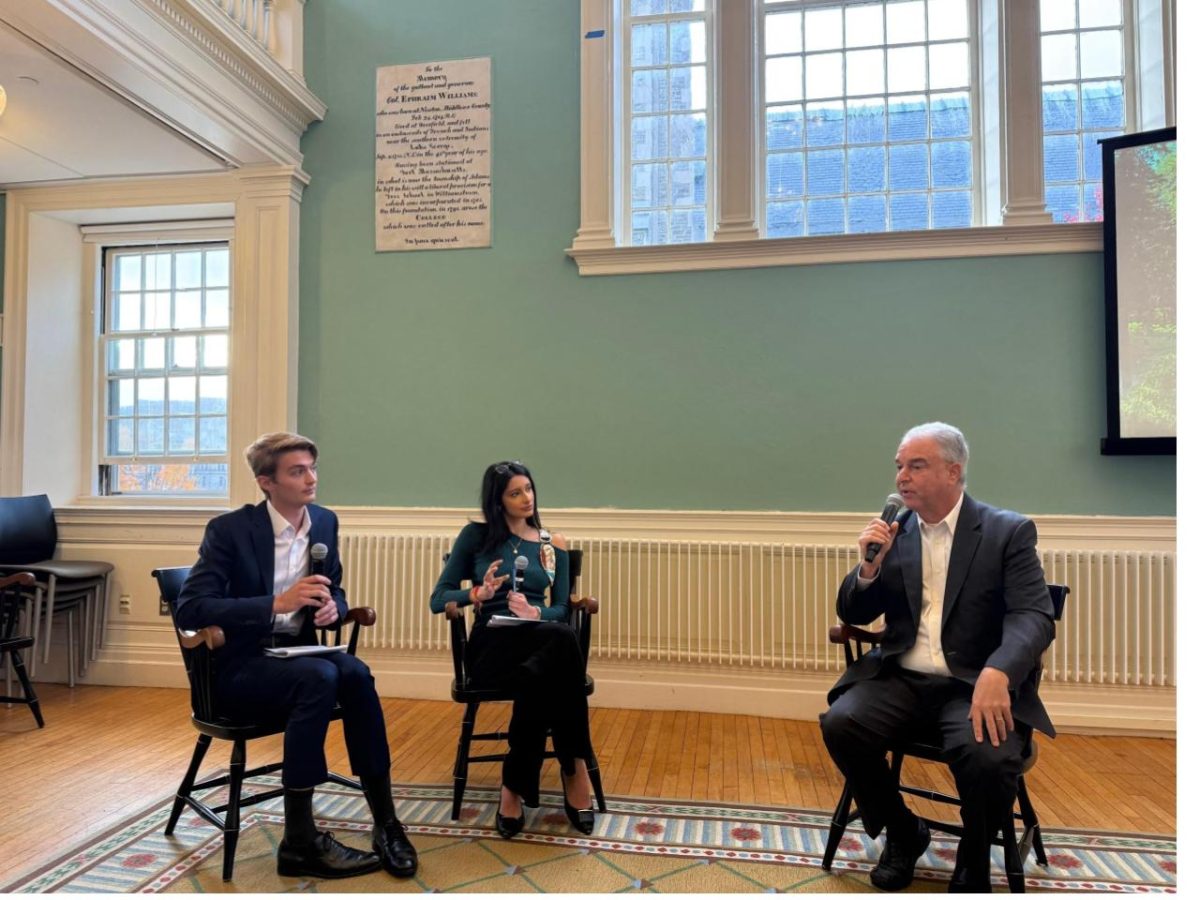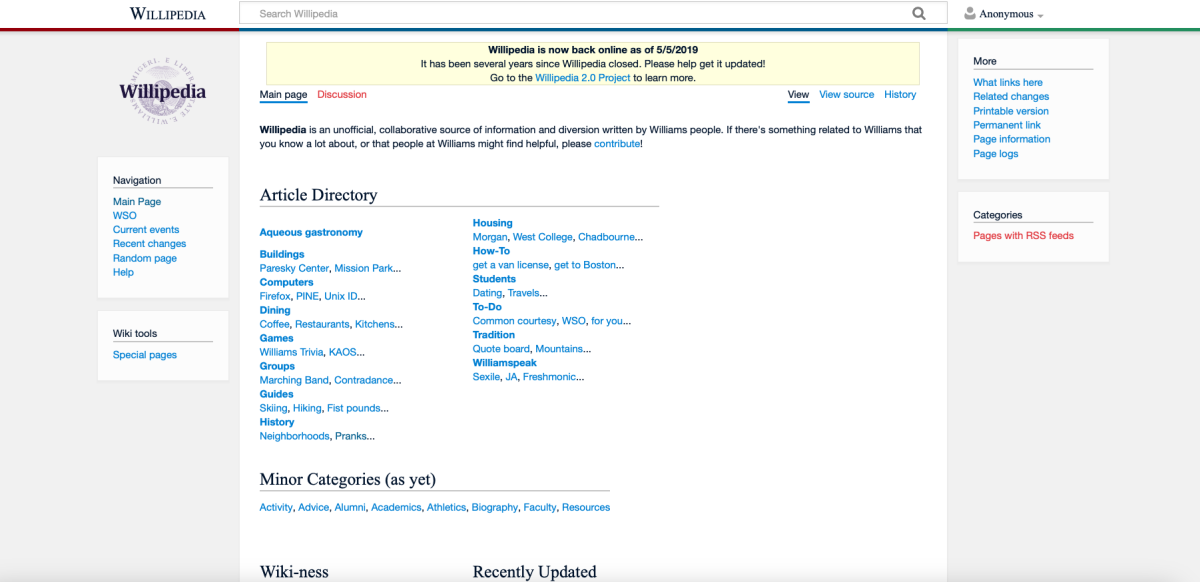
Recent executive orders from President Donald Trump have called into question the security of federal funding for research, including grants from the National Science Foundation (NSF). Members of the administration told the Record that they are uncertain how the College would respond to future funding freezes, but remain committed to supporting faculty research.
According to Brenda Thomas, director of the grants office, the NSF is the largest source of external grant funds to the College and plays a crucial role in financing scientific research here. Federal grants that have already been approved are not affected by the recent executive orders and faculty should continue to make use of them, Provost Eiko Maruko Siniawer ’97 said.
“All faculty members who currently have an active federally funded grant, including NSF grants, have been advised by the Grants Office to continue to charge expenses to the grant as usual,” Siniawer wrote in an email to the Record.
Dean of the Faculty Lara Shore-Sheppard wrote in an email to the Record that the College is planning to provide additional support to faculty in the event of serious decreases in federal funding. “The work of the faculty is fundamental to the core mission of the College, and supporting faculty and their work is essential,” she wrote. “We are engaged in planning across a wide set of possible policies in order to ensure that this can continue.”
Thomas said that multiple College offices, including the counsel’s office, the Finance Office, and the Office of the Provost have been monitoring the status of federal grants. “We have been talking … almost daily in an effort to share information as it comes in from federal agencies,” she wrote.
Faculty members currently receive $3,000 a year from the College general expenses and rely on additional funding to cover further research and additional expenses. This funding includes internal and external grants, such as those from the NSF. Already, the College’s internal funding for faculty research is “typically at least as large as what we receive in federal grant funds,” Shore-Sheppard said.
The NSF initially paused all grant payments on Jan. 28 in response to Trump’s executive orders targeting diversity, equity, and inclusion (DEI) initiatives. During the freeze, the NSF also canceled grant review panels that approve new research funding. Thomas said that several grant proposals submitted by College faculty are pending and will likely be delayed.
Payments resumed on Feb. 2 following a court order, but the fate of NSF grants to the College remains uncertain. Senior NSF staff are reviewing the status of thousands of grants based on the presence of DEI-related keywords including “multicultural” and “women.”
Although payments were paused, faculty research was not directly affected. “Grant funds are not actually sitting in an account here at Williams,” Thomas said. “[The College] ‘fronts’ the funds for the faculty member so they can begin spending and working on their research. As they spend, our finance office ‘draws down’ funds from federal government or other funders — it’s a reimbursement process.”
Executive orders that target DEI will have broad consequences that may affect research not explicitly tied to such initiatives, Assistant Professor of Biology Allison Gill said. “One of the evaluative criteria of NSF funding is broader impacts, which in some cases can encompass principles related to DEI,” she explained. The NSF’s impact criteria, which were used to evaluate past grant applications, encourage grant applicants to tie their research impacts to inclusion efforts.
Beyond DEI-related disruptions, the NSF may face general budget cuts of up to 66 percent in the next fiscal year — imperiling students’ access to research opportunities, according to Gill. “There’s no way that we will be able to support the same number of students … in the absence of either federal support or reallocation of resources,” she said.
The Trump administration has challenged the court order halting the freezing of NSF grants, stoking fears of further funding disruption.
“Federal grants help faculty to be at the forefront of their fields and bring their students along with them,” Shore-Sheppard wrote.
Gill said that she relies entirely on funding from the NSF to pay the salary for her research technician, Peter Manos, and that it costs about $5,000 to hire a summer research student in her lab.
“I’m lucky that I have this job, and will have it for the duration of the grant, but it definitely leaves me nervous thinking about my friends and other people in my field,” Manos said.
“Supporting scholarly research and helping to ensure continuity in faculty members’ research programs are among the highest priorities of the College,” Siniawer wrote. “In this landscape of significant financial uncertainty, it is difficult to say what exactly the College would or could do in a host of what are currently hypothetical situations,” she added.














